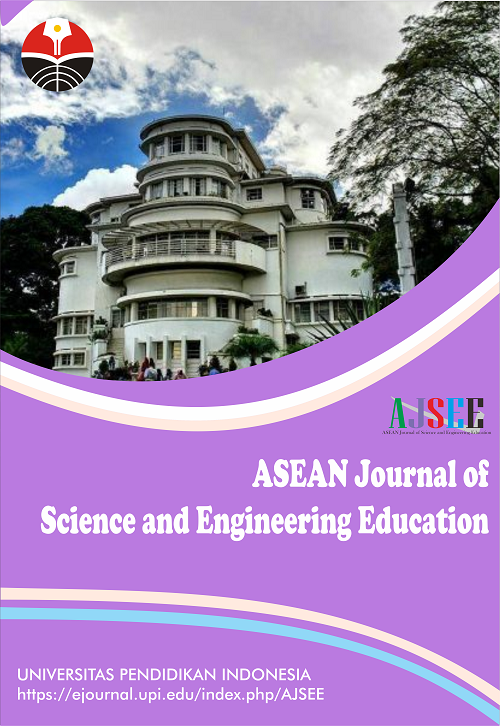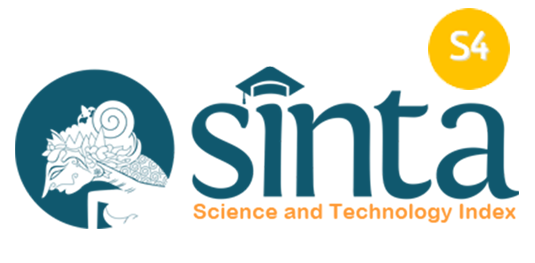Students’ Conceptions of Learning Geotechnics: A Qualitative Approach
Abstract
Keywords
Full Text:
PDFReferences
Atkinson, J. (2002). What is the matter with geotechnical engineering. Proceedings of the Institution of Civil Engineers, Geotechnical Engineering, 155(3), 155-158.
Boulton-Lewis, G. M., Marton, F., Lewis, D. C., and Wilss, L. A. (2004). A longitudinal study of learning for a group of indigenous Australian university students: Dissonant conceptions and strategies. Higher Education, 47, 91-112.
Boxall, J., and Tait, S. (2008). Inquiry-based learning in civil engineering laboratory classes. Proceedings of the Institution of Civil Engineers, Civil Engineering, 161(4), 138-143.
Chin, C., and Brown, D.E. (2000). Learning in science: A comparison of deep and surface approaches. Journal of Research in Science Teaching, 37, 109-138.
Ditcher, A. K. (2001). Effective teaching and learning in higher education, with particular reference to the undergraduate education of professional engineers. International Journal of Engineering Education, 17(1), 24-29.
Eklund-Myrskog, G. (1998). Students’ conceptions of learning in different educational contexts. Higher Education, 35, 299-316.
Hofer, B. K., and Pintrich, P. R. (1997). The development of epistemological theories: Beliefs about knowledge and knowing and their relation to learning. Review of Educational Research, 67 (1), 88-140.
Lederman, N. G., Abd-El-Khalick, F., Bell, R. L., and Schwartz, R. (2002). Views of nature of science questionnaires: Toward valid and meaningful assessment of learners’ conceptions of nature of science. Journal of Research in Science Teaching, 39(6), 497-521.
Lee, M. H., Johanson, R. E., and Tsai, C.C. (2008). Exploring Taiwanese high school students’ conceptions and approaches to learning science through a structural equation modelling analysis. Science Education, 92(2), 191-220.
Lin, C. C., and Tsai, C. C. (2009). The relationship between students’ conceptions of learning engineering and their preferences for classroom and laboratory learning environments. Journal of Engineering Education, 98, 193-204.
Marshall, D., Summer, M., and Woolnough, B. (1999). Students’ conceptions of learning in an engineering context. Higher Education, 38, 291-309.
Marton, F., Dall’Alba, G., and Beaty, E. (1993). Conceptions of learning. International Journal of Educational Research, 19, 277–299.
Montfort, D., Brown, S., and Pollock, D. (2009). An investigation of students’ conceptual understanding in related sophomore to graduate-level engineering and mechanics Courses. Journal of Engineering Education, 98(2), 111-129.
Shiavi, R., and Brodersen, A. (2005) Study of instructional modes for introductory computing. Journal of Engineering Education, 94(4), 355-362.
Suprapto, N., Chang, T., and Ku, C. (2017). Conception of learning physics and self-efficacy among Indonesian university students. Journal of Baltic Science Education, 16(1), 7-19.
Trigwell, K., and Ashwin, P. W. H. (2006). An exploratory study of situated conceptions of learning and learning environments. Higher Education, 51(2), 243-258.
Tsai, C. C. (2004) Conceptions of learning science among high school students in Taiwan: A phenomenographic analysis. International Journal of Science Education, 26(14), 1733-1750.
DOI: https://doi.org/10.17509/ajsee.v3i1.49142
Refbacks
- There are currently no refbacks.
Copyright (c) 2022 Universitas Pendidikan Indonesia

This work is licensed under a Creative Commons Attribution-ShareAlike 4.0 International License.














